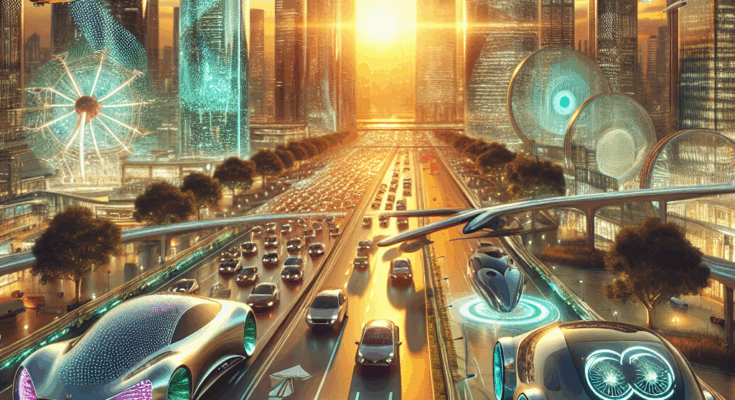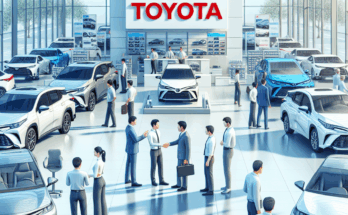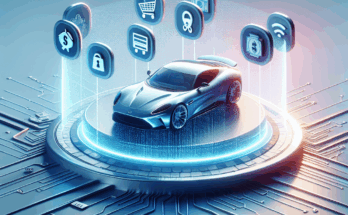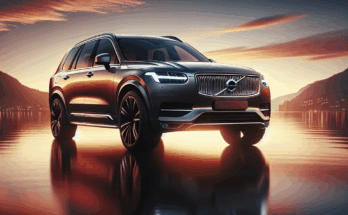Introduction to the Cars of the Future
The automotive industry has been evolving at an unprecedented pace, driven by technological advancements, changing consumer preferences, and the need for sustainable mobility solutions. Concept vehicles have always been the vanguard of this evolution, showcasing what the future of driving could look like. These cars are not just about aesthetics; they represent a leap forward in innovation, design, and functionality. In this blog post, we’ll delve into some of the most promising concept vehicles that are set to change the game, offering a glimpse into the future of transportation.
The Rise of Electric and Autonomous Vehicles
One of the hallmark features of future cars is their shift towards electric and autonomous driving. The electric vehicle (EV) market has seen a significant surge in recent years, driven by government incentives, declining battery costs, and increasing consumer awareness about environmental issues. Concept vehicles like the Tesla Cybertruck and the BMW Vision iNEXT embody this trend, promising greater efficiency, lower emissions, and exceptional performance. Autonomous vehicles (AVs) are another frontier, with companies like Waymo and Cruise pioneering the development of self-driving cars that can navigate without human intervention. These vehicles are not only more convenient but also potentially much safer, as they eliminate the risk of human error.
Innovative Designs and Materials
The cars of the future will also be distinguished by their innovative designs and the use of advanced materials. Vehicle manufacturers are experimenting with sustainable materials, such as recycled carbon fiber, plant-based composites, and even fungal mycelium, to reduce the environmental footprint of car production. Designs are becoming more aerodynamic, not just for speed but also to maximize efficiency. The Mercedes-Benz Vision AVTR, inspired by the movie “Avatar,” is a prime example, with its biometric design that incorporates natural and sustainable materials. These designs not only look futuristic but also contribute to making the vehicles more sustainable and efficient.
Technology Integration and User Experience
The future of cars is deeply intertwined with technology, particularly when it comes to the user experience. Modern vehicles are equipped with sophisticated infotainment systems, advanced driver-assistance systems (ADAS), and increasingly, vehicles are becoming connected devices that integrate seamlessly with the driver’s digital life. Concept vehicles take this a step further, incorporating AI, augmented reality displays, and personalization technologies to create a driving experience that is both enjoyable and safe. For instance, the Cadillac InnerSpace concept vehicle features a fully immersive entertainment system and a sleek, minimalist design that prioritizes comfort and connectivity.
Sustainability and Environmental Impact
Perhaps one of the most significant aspects of future cars is their potential to reduce our environmental footprint. With the global push towards net-zero emissions, the automotive industry is under pressure to deliver sustainable solutions. Electric vehicles, hydrogen fuel cell vehicles, and even solar-powered cars are being developed to minimize dependence on fossil fuels. Concept vehicles like the Sono Motors Sion, covered in solar panels, represent a new wave of thinking about how cars can generate their own power and reduce their reliance on the grid. Additionally, companies are focusing on the recyclability and reusability of car parts, aiming to create a circular economy within the automotive sector.
Conclusion: The Future is Electric, Autonomous, and Sustainable
The cars of the future promise a revolution in mobility, combining sustainability, technology, and design in ways that were previously unimaginable. As we move towards a more electric, autonomous, and connected driving experience, it’s clear that the automotive industry is on the cusp of a significant transformation. These changes are not just about the cars themselves but about the kind of future we want to create – one that prioritizes the environment, safety, and personal freedom. Whether you’re a tech enthusiast, an environmental advocate, or simply someone who loves driving, the future of cars has something for everyone.
FAQ
-
Q: When can we expect these concept vehicles to hit the market?
A: While some concept vehicles may enter production in the near future, others are further down the line. The exact timeline varies, but we can expect significant advancements in electric and autonomous vehicles over the next decade. -
Q: How affordable will these future cars be?
A: Initially, many of these vehicles may be on the higher end of the price spectrum due to the advanced technology and materials used. However, as the market expands and technology advances, prices are likely to become more competitive and affordable for a wider range of consumers. -
Q: Will traditional driving become obsolete with the rise of autonomous vehicles?
A: Not immediately. Autonomous vehicles will likely coexist with traditional vehicles for many years. However, as autonomous technology improves and regulations evolve, we may see a gradual shift towards more autonomous and semi-autonomous vehicles on the roads. -
Q: How will the shift to electric vehicles impact the environment?
A: The shift to electric vehicles is expected to significantly reduce greenhouse gas emissions and other pollutants associated with traditional combustion engines. However, the production of EVs and the source of the electricity used to charge them will also have environmental impacts, which need to be addressed through sustainable practices and renewable energy sources.



